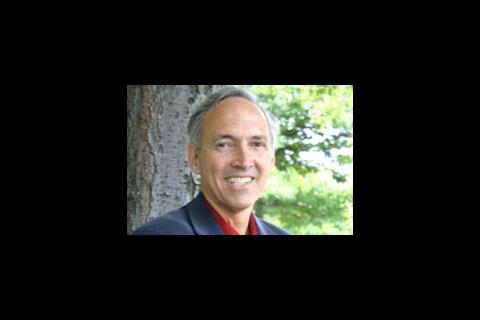View from the US: In his first online column American green building expert Jerry Yudelson predicts a huge growth in take-up of the BREEAM-equivalent sustainable standard
Green building is alive, well and growing rapidly in the U.S. The only national commercial building rating system is the U.S. Green Building Council (USGBC)’s “Leadership in Energy and Environmental Design” (LEED). Introduced in the spring of 2000, LEED now consists of six major rating systems:
- LEED for New Construction
- LEED for Core and Shell Construction
- LEED for Commercial Interiors
- LEED for Existing Buildings
- LEED for Homes (still in pilot phase, or beta test, until November 2007)
- LEED for Neighborhood Development (still in pilot phase, or beta test)
Current green building status
As of September 2007, LEED had certified nearly 1,100 commercial projects, each averaging about 10,000-sq.m. More than 6,000 other projects are currently registered with the USGBC to acquire LEED certification in the future.Here are some other mind-boggling numbers. Nearly 60,000 building industry professionals have attend an all-day workshop in the LEED system. (I have personally trained more than 3,000 people in the LEED system through these workshops.) When one considers there are less than 80,000 members of the American Institute of Architects, it’s clear that LEED is reaching critical mass in the U.S. Additionally, more than 40,000 industry participants have passed a national exam to become “LEED Accredited Professionals.”
Here’s another incredible stat: the growth in USGBC membership has soared this decade, from 500 to nearly 10,000 by July of 2007. The USGBC’s fast-growing membership now exceeds 11,500 companies, organizations, government agencies, schools, universities and colleges, and nonprofit organisations, rendering even the July total of 10,000 members obsolete. Since the beginning of 2007, USGBC membership has grown by 60% - remember these are organizations that have to pay dues to belong, not individuals.
Green Building Growth from 2000 through 2006 was strong
Of the four established rating systems, LEED for New Construction (LEED-NC) constitutes more than 70% of all projects. Figure 2 shows the growth of LEED-NC registered projects, registered project area and certified projects, from 2000 to the end of 2006. For the first few years, LEED was supported mainly by government projects, schools and nonprofits. Since the beginning of 2005, however, the private sector has discovered the “business case” for green buildings and is leading the way in new LEED projects for all sectors, including office buildings, retail, hospitality, recreation and healthcare.
Accelerating change
From 2005 to 2006, the cumulative number of LEED registered projects (for all rating systems) grew by 50%, whilst the number of LEED certified projects grew by nearly 70%. Through the first nine months of 2007, the cumulative number of LEED registered projects had grown by 50% and LEED certified projects had grown by more than 60%. This indicates that the year-end growth is accelerating. I predict that there will be more than 2,500 new LEED projects registered this year for future certification, and nearly 1000 completed projects certified. The USGBC’s “big, hairy, audacious goals” for the end of 2010, three years away, are the following:1. 100,000 LEED-certified commercial projects
2. 1,000,000 LEED-certified homes
While we are still a long way from reaching these numbers, one can see that with accelerating growth, what has been a trend will become a full-fledged green building revolution.
What has become a trend will become a fully-fledged green building revolution
Jerry Yudelson
Postscript
Jerry Yudelson is one of the leading green building authorities in the US. He has written six books on green buildings including three being released this autumnl: Green Building: A to Z (New Society Publishers); The Green Building Revolution (Island Press); and Marketing Green Building Services: Strategies for Success (Elsevier/Architectural Press). He may be contacted at jerry@greenbuildconsult.com. He is also principal of Yudelson Associates





























